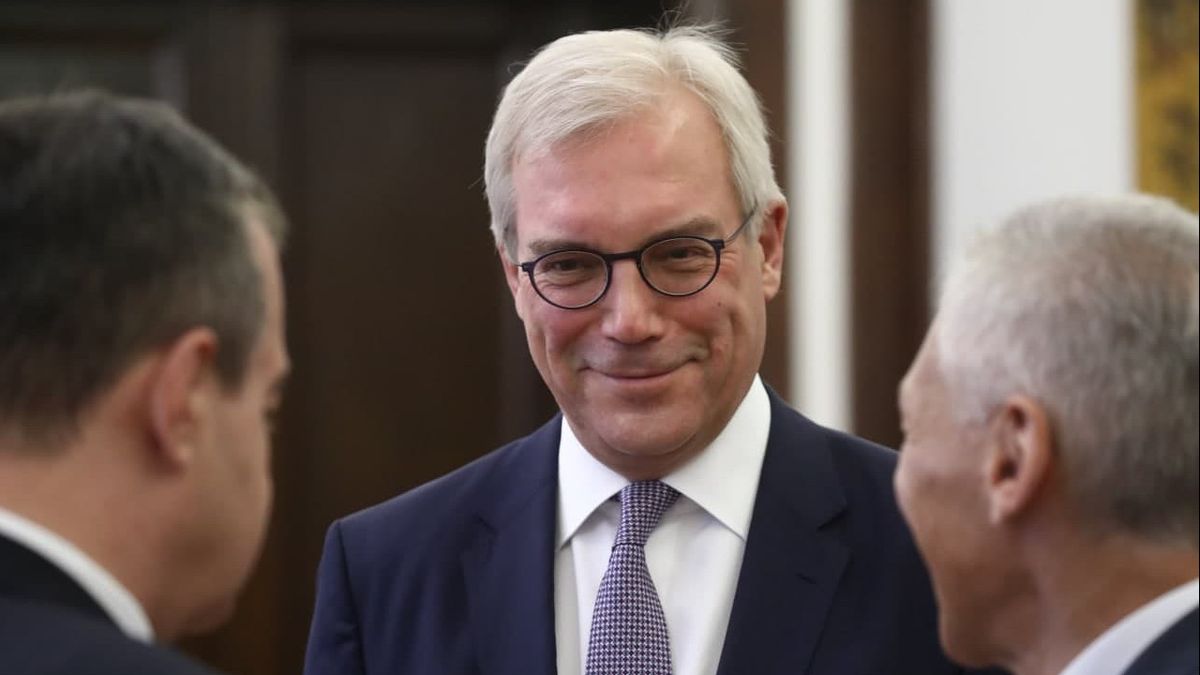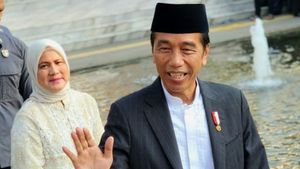JAKARTA - Russia is not planning to proactively close its European embassies, in response to hostile actions by the West, including the expansion of sanctions against Moscow, a deputy foreign minister has said.
"This is not our tradition," Deputy Foreign Minister Alexander Grushko told RIA.
"Therefore, we believe that the work of the diplomatic mission is important," he continued.
Last Monday, Russian Ambassador to Poland Sergey Andreev was doused with red substance by people protesting the war in Ukraine, as he was about to lay flowers at the Soviet Military Cemetery in Warsaw, marking the 77th anniversary of Nazi Germany's victory in World War Two.
Video footage posted on Twitter showed protesters, some with Ukrainian flags, surrounding the Russian delegation and chanting "fascist" before Ambassador Sergey Andreev was doused with a red substance.
Andreev told reporters he and his team were not seriously injured in the incident, the TASS news agency reported.
"We will have a formal protest. When they recommended that we don't have a bigger event, we met them halfway, we didn't make the situation worse," he said.
Separately, Russia's Foreign Ministry said in a statement, "A strong protest was expressed to the Polish authorities for practically conspiring with neo-Nazi thugs."

He also demanded that Polish authorities hold a new wreath-laying ceremony immediately after the incident forced the suspension of the original plan.
Meanwhile, the Polish Foreign Ministry described the incident as "regrettable". "Diplomatics enjoy special protection, regardless of the policies taken by the governments they represent," he said in a statement.
It is known, last month that Russia put the number of diplomats expelled from various countries in the hundreds, since the invasion of Ukraine on February 24, it took a long time to recover.
This was stated by the Deputy Minister of Foreign Affairs of Russia Yevgeny Ivanov at a meeting of the Russian Federation Council's Interim Commission for the Protection of State Sovereignty and Prevention of Interference in the country's Internal Affairs.
"Along with the introduction of all kinds of sanctions, Moscow's favorite method of punishment was the expulsion of Russian diplomats. It didn't start on February 23, it started earlier. Our (Western) colleagues have practiced this," Ivanov explained.
"Since the beginning of the special military operation in Ukraine, about 400 employees of our overseas mission have been expelled from 28 Western countries. The leaders there are Poland, Germany, Slovenia, Slovakia, Croatia, France, Italy and Spain," he said.
"The capacity of consular missions in many countries has also been reduced, of course. This is done to complicate the provision of any assistance, including to Russian citizens and our colleagues living in those countries. This also applies to press secretaries in a number of countries, so it is impossible to convey information," said Ivanov.
The English, Chinese, Japanese, Arabic, and French versions are automatically generated by the AI. So there may still be inaccuracies in translating, please always see Indonesian as our main language. (system supported by DigitalSiber.id)









